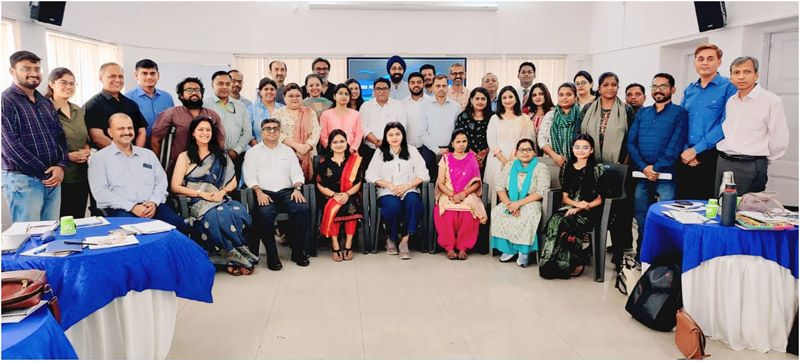Published on April 15, 2025
The strength of an institution is measured not only by its balance sheets or market share, but by its commitment to those most often left unseen and unheard. The Disability Learning Mission, spearheaded by the Tata Affirmative Action Programme (TAAP) and Tata Steel Foundation’s Sabal team, is a testament to this truth.
Designed as a 2.5-day experiential and introspective journey, the Mission brought together senior leaders from across Tata group companies. More than a training or compliance exercise, the event was a call to pause, reflect and act. Set in Jamshedpur and Noamundi, the Mission invited participants into a space of learning and reflection.

Day 1: From Awareness to Understanding
The first day laid the foundation for the Mission. Through a series of curated engagements, participants were introduced to the spectrum of challenges, biases and systemic exclusions faced by persons with disabilities (PwDs) across India. The conversations were led by subject matter experts, grassroots practitioners and individuals with lived experiences.
Participants were encouraged to look beyond policy documents and CSR dashboards, to examine how recruitment processes, infrastructure and workplace culture often leave people out. The result was a shared recognition that while efforts toward inclusion exist, policies alone don’t create inclusion. Empathy, intentional design and active participation are required.
The day challenged assumptions and set the stage for deeper engagements by shifting focus from “fixing” to understanding and from external responsibility to internal accountability.
Day 2: Immersion in Noamundi
On the second day, participants visited Noamundi—a rural town where Tata Steel Foundation works closely with PwDs. The aim was to move beyond observation and experience inclusion in action.
The highlight was a walk to the Murga Mahadev Temple, alongside community members with disabilities. The uneven terrain reflected the daily challenges PwDs face in navigating public spaces. Leaders walked with, not ahead or behind, emphasising shared experience over hierarchy.
This symbolic exercise reinforced a key idea: inclusion means changing systems, not creating separate ones. It’s about equity, not charity and about redesigning everyday experiences to include everyone.
Day 3: Encounters with Dignity and Strength
The final day took participants to a leprosy colony in Jamshedpur, home to families facing social exile that spans generations. Despite limited means, the community demonstrated resilience and dignity, with livelihoods serving as a source of empowerment rather than survival.
Later, the group visited Gyanoday Noble Academy, a learning space for children with intellectual disabilities. In these classrooms, participants witnessed children painting, playing music and learning - each at their own pace and rhythm, reinforcing how PwDs can and do lead normal lives. The experience helped the participants see these children as more than statistics on a CSR slide. The final experience also reminded them that organisations will only be as compassionate as the leaders who shape them.
The Debrief
The final session focused on personal and professional takeaways. Leaders spoke candidly about the discomfort of privilege, the need for systemic change and how true inclusion goes beyond good intentions. Inclusion, they agreed, is not a CSR function. It is a leadership value that must be embedded into business decisions, team structure and policies. Many committed to review hiring practices, making infrastructure more accessible and to creating space for disabled voices in decision-making rooms.
A Blueprint for Inclusive Leadership
The Tata group’s legacy has always combined business success with social responsibility. The Disability Learning Mission builds on that legacy, offering a model to shape compassionate, inclusive organisations. It serves as a call to action for leadership across the Group: to make accessibility a default, not an exception; to bring inclusion into strategy, not just compliance; and to see the value in every individual, regardless of ability.
Driven by TAAP and Tata Steel Foundation’s Sabal platform, the Mission is a step toward systemic change, where equity is not a gesture, but a norm.


